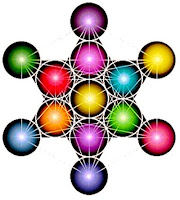Holes

Since I don’t ‘even’ have any idea what the actual Torah Portion was last week, partially because I was sick all week long and didn’t go to Shul on Shabbat (like a bad boy) and partially because the whole Jewish thing is all new to me, I am going to skip the ‘actual’ parsha for this week, seeing as I wrote a nice little ditty last week on Kedoshim (Leviticus 19-20), and move right into something else that I have been thinking about; namely, ‘The Generation of the Desert.’ This is the generation of Israelites that, because of the spies that gave a false report when scouting the land, had to wander around and then die in the desert, never to set foot in Israel. Seems harsh, doesn’t it? I have been identifying with this idea recently from the struggle of just getting along here in the Promised Land. Now don’t get me wrong; it is absolutely amazing here on so many levels... It’s just that little things like language, culture, religion, work, schooling for the kids, and just plain communica...


